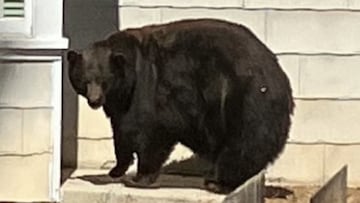Meet ‘Hank the Tank’, a bear linked to 21 home invasions
A serial home invader has been apprehended in Lake Tahoe after entering at least 21 houses. The offender is a female black bear nicknamed ‘Hank the Tank’.


A female black bear who has been linked to a series of home invasions that have taken place in and around Lake Tahoe has been apprehended.
California Department of Fish and Wildlife (CDFW) biologists captured the large bear, nicknamed “Hank the Tank”, along with her three male cubs. According to the CDFW, she is responsible for at least 21 home break-ins and extensive property damage, based on DNA evidence.
Hank the Tank: ‘Conflict’ animal
The bear is considered a ‘conflict’ animal due to her behavior. In March, wildlife authorities had placed an ear tag and a satellite tracking collar on the animal, officially known as 64F. However, she shed the collar in May.
The captured bear is one of at least four that have been referred to by the public as Hank the Tank based on black bear sightings over the past few years.
The CDFW has secured permission from the state of Colorado to transport the bear to the Wild Animal Sanctuary near Springfield, Colorado.
Today, wildlife biologists for the @CaliforniaDFW captured a large female black bear, who will be transferred to @animalsanctuary upon a one-time permission from @COParksWildlife and @coagriculture1.
— Governor Jared Polis (@GovofCO) August 4, 2023
We welcome “Hank the Tank” (turned out to be Henrietta the Tank) to Colorado! pic.twitter.com/KdI0l2NtoW
Hank the Tank to be separated from her cubs
Wildlife authorities usually do not transfer conflict animals to other areas because of the possibility that they would bring their troublesome behavior along with them. However, the widespread interest in this bear could put her in danger, and her staying in the area could also pose a threat to the South Lake Tahoe community, which is why she is being relocated.
Related stories
Colorado Parks and Wildlife are only authorizing the transfer of the adult, and not those of her cubs, which have accompanied her in some of her forays into houses.
The young animals are likely to be transferred to Sonoma County Wildlife Rescue located in Petaluma. It is hoped that staying in the wildlife rehabilitation facility would help the cubs stop the negative behaviors they learned from their mother, so that they can eventually be returned to the wild.

